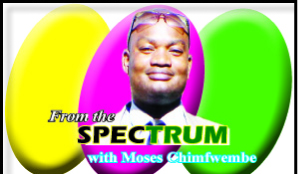 THE art of coaching is one of the most important ingredients that lead to success in sport. Successful teams and players across the world have always had good trainers to guide them through the steps to glory.
THE art of coaching is one of the most important ingredients that lead to success in sport. Successful teams and players across the world have always had good trainers to guide them through the steps to glory.
World number one tennis player Novak Djokovic, world 100m sprint record holder Usain Bolt, retired ferocious boxer Floyd Mayweather Junior and even our own ‘Killer Bee’ Esther Phiri have great stories to tell about their road to success and the forces behind their emergence.
Not everyone can make a good coach because coaching is leading and once someone has the necessary tools, they will discover that coaching is the most powerful form of leadership one could ever practice.
Leaders with the proper coaching skills will always demonstrate the principles that they expected their followers to live by and inciting them to go the extra mile when searching for success.
Coaches help the players to reach their next level of performance by examining past performances and working on areas for improvement.
In order to be at the top of their game, coaches, too, need to continually hone their skills because improving coaching skills does not only benefit members of team, it ultimately benefits the trainer as well.
Knowing that coaching is not just a one-size-fits-all endeavour, it is important for the trainers to tailor their coaching style for each individual in the team in order to reap maximum benefits.
The Football Association of Zambia (FAZ) is one of a few sports bodies in the country that prioritises skills development of the coaches.
FAZ, who have conducting numerous coaching courses, has gone miles ahead in ensuring that football coaches in the country are fully equipped with necessary skills and tools before setting out on a mission to haul silverware for their respective clubs.
National team coach ‘Chicken’ George Lwandamina is an example of a success story that has greatly benefited for trainings conducted by FAZ in conjunction with the Confederation of African Football (CAF) and FIFA.
Lwandamina, who is on the brink of making history at his Zesco United side as the second coach to have successfully defended the league title and Barclays Cup, has perfected his coaching skills in the past years through attending numerous coaching courses.
Sports minister Vincent Mwale recently emphasised the need for the sports fraternity in the country to invest in the training of coaches as the first step to success and it is only prudent that various sports associations take heed of the minister’s timely advice.
Some ways that coaches work to improve their skills and work to fulfil the needs of all their team members are:
The best coaches are continually learning and use all the tools at their disposal to improve their skills. As a coach, one can do a self-evaluation and set their own personal goals for improvement.
As a coach, one should ask themselves if they are able to drive improvement by holding the players to higher expectations than they might set for themselves. The coach should also retain some faith that their players can reasonably live up to those expectations.
Whether one is a professional coach, a leader or manager using a coaching approach to help your team members develop, or using coaching skills in a less-formal environment, there are a number of key skills that will help you to become a great coach.
The most important attribute of any coach is that they want to help the person or people they are coaching to learn.
A good coach doesn’t see themselves as an expert able to fix all problems and having all the answers. Instead, they see themselves as supporting the process of learning.
Coach must build a good rapport with their players and show interest in and respect for the athletes and in providing instruction and explanation, coaches are always taught to plan and strategise on techniques to achieve desired results.
Just as Mwale observed during the African Union Sports Council (AUSC) workshop recently held at the Olympic Youth Development (OYDC), Zambia’s most qualified coaches are least qualified on the international stage.
Therefore, the onus is on all sports associations to ensure that coaches are adequately trained as this would raise the standards of the various sports disciplines in the country.
For comments: moseschimfwembe@gmail.com






